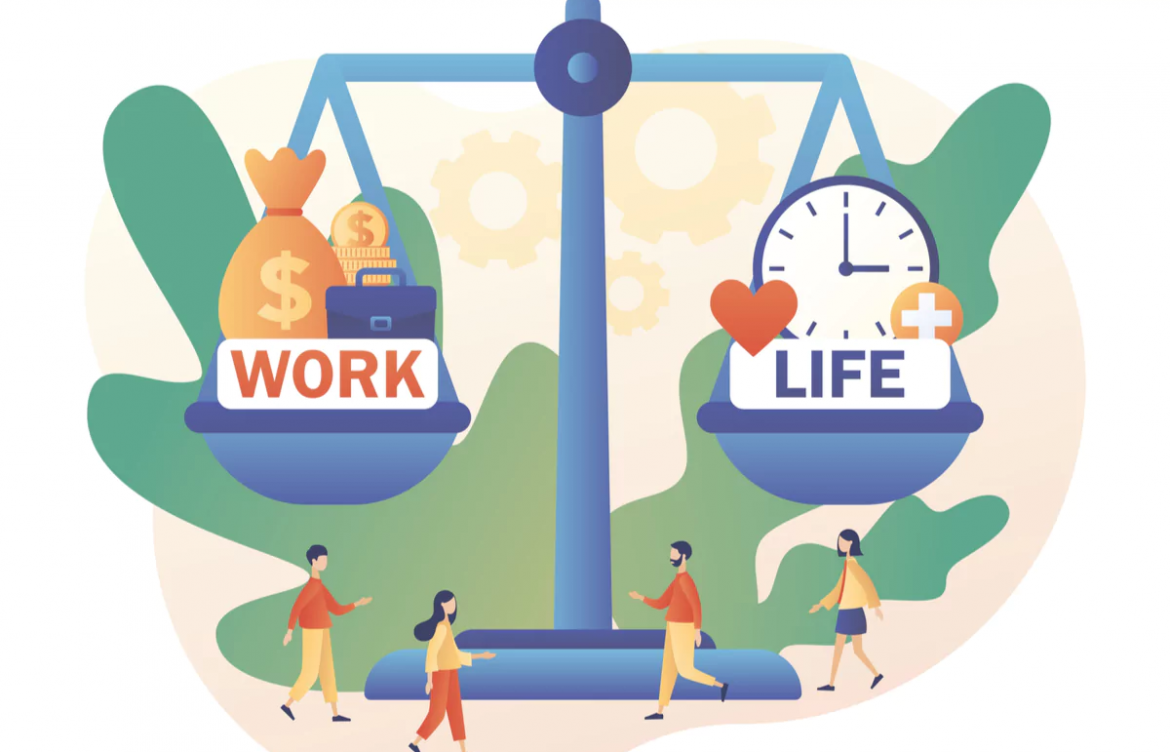
This is How to Maintain Work-Life Balance: A Comprehensive Guide
In today’s fast-paced world, achieving a work-life balance has become more challenging than ever. With the constant demands of work, personal life, and the ever-elusive pursuit of relaxation, many individuals find themselves struggling to maintain equilibrium. This comprehensive guide aims to provide practical insights and strategies on how to maintain work-life balance effectively. From time management to self-care, we’ll explore the key principles that can help you lead a more fulfilling life.
Introduction

In the pursuit of professional success, we often overlook a critical aspect of our lives – maintaining a healthy work-life balance. The consequences of an imbalanced life can be detrimental to our physical and mental well-being, affecting not only ourselves but also those around us. However, with the right strategies and mindset, achieving a harmonious work-life balance is possible. In this guide, we will delve into the art of balancing the demands of work and personal life, providing you with actionable tips and insights to lead a more fulfilling life.
How to Maintain Work-Life Balance

Understanding Your Priorities
To achieve a work-life balance that works for you, it’s essential to understand your priorities. Take some time to reflect on what truly matters in your life. Identify your long-term and short-term goals, both in your career and personal life. Knowing your priorities will help you make informed decisions and allocate your time and energy accordingly.
Effective Time Management
Time management is a fundamental skill for maintaining a work-life balance. Start by creating a daily or weekly schedule that includes both work-related tasks and personal activities. Set specific time blocks for work, family, hobbies, and self-care. Use digital tools or traditional planners to help you stay organized and make the most of your time.
Setting Boundaries
One of the challenges of modern work environments, especially with remote work, is the blurring of boundaries between work and personal life. To maintain a healthy balance, establish clear boundaries. Communicate your work hours to colleagues and family members and stick to them as closely as possible. Avoid the temptation to check work emails or take calls during your personal time.
Learn to Say No
Overcommitting to work or social obligations can quickly lead to burnout. Learning to say no when necessary is a crucial skill for work-life balance. Prioritize tasks and commitments based on your goals and capacity. Politely decline additional responsibilities that may stretch you too thin.
Self-Care and Well-Being
Your well-being should be a top priority when striving for work-life balance. Make time for self-care activities that rejuvenate your body and mind. Exercise regularly, practice mindfulness or meditation, and ensure you get enough sleep. Taking care of your physical and mental health will enable you to perform better in both your personal and professional life.
Delegate and Seek Support
Don’t hesitate to delegate tasks or seek support when needed. Whether it’s at work or home, distributing responsibilities can alleviate your workload and reduce stress. Reach out to colleagues, family members, or professionals who can assist you in managing your commitments effectively.
Learn to Unplug
In today’s hyper-connected world, constant access to digital devices and information can hinder work-life balance. Make it a habit to unplug from technology during your personal time. Set specific periods when you disconnect from emails, social media, and work-related tasks. Use this time to connect with loved ones or engage in activities that bring you joy.
Continuous Evaluation and Adjustment
Achieving work-life balance is an ongoing process. Regularly evaluate your commitments and priorities, and be willing to adjust your strategies as needed. Life circumstances change, and what worked yesterday may not be suitable for tomorrow. Flexibility and adaptability are key to maintaining equilibrium.
FAQs
Q: What are the consequences of an imbalanced work-life?
A: An imbalanced work-life can lead to burnout, decreased productivity, strained relationships, and adverse effects on physical and mental health.
Q: Is it possible to maintain a work-life balance in a demanding job?
A: Yes, maintaining a work-life balance is possible in demanding jobs with effective time management, setting boundaries, and practicing self-care.
Q: How can I prioritize self-care in my busy schedule?
A: Prioritizing self-care requires setting aside dedicated time for activities that rejuvenate you, such as exercise, mindfulness, and hobbies.
Q: What if my work involves irregular hours or frequent travel?
A: If your work involves irregular hours or travel, adaptability becomes crucial. Create a flexible schedule and prioritize self-care during your available time.
Q: How can I communicate my boundaries effectively to colleagues and family members?
A: Open and honest communication is key. Clearly express your boundaries
CLICK HERE to read more from us.